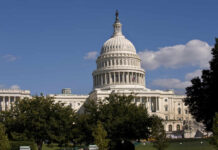
As the 2024 election cycle gains momentum, the Republican National Committee (RNC) faces a difficult financial situation, one not seen since February 2015. With cash reserves dwindling to $9.1 million as of late October — significantly less than the Democratic National Committee’s $17.7 million — questions arise regarding the RNC’s readiness to support its candidates effectively.
These financial challenges are not just figures on a balance sheet; they represent a deeper concern within the GOP’s ranks. Tennessee RNC member Oscar Brock candidly acknowledges the issue, stating, “It’s a revenue problem.” Despite traditional fundraising methods being employed, the results are lagging far behind expectations. This dip in donations has not gone unnoticed by the party’s base or its most influential figures, including advisers to President Donald Trump.
‘A Revenue Problem’: Worries Mount Over GOP’s Finances Ahead Of 2024.
🌟Like, Share and Follow🌟 @BigScuba99 IFBAP 😁 🍊 #Trump2024 https://t.co/vHK8oh2OuV
— BigScuba99 (@BigScuba99) November 27, 2023
The conservative base’s discontent is palpable, with many placing the blame squarely on the RNC’s leadership, particularly Chairwoman Ronna McDaniel. The RNC’s electoral track record backs the narrative of dissatisfaction since 2017, a period marked by significant defeats that have left the base demoralized. A Virginia RNC member, Patti Lyman, explicitly critiques: “The RNC’s electoral record since 2017 speaks for itself.”
Trump’s words resonate with those harboring doubts about the RNC’s effectiveness. Trump has tentatively supported McDaniel, who associates herself with his 2016 victory but has faced criticism over the RNC’s handling of presidential debates and broader strategic decisions.
Trump’s advisers and supporters are increasingly vocal about their concerns, particularly regarding the RNC’s strategy and McDaniel’s leadership. The chairwoman’s attempts to navigate the party’s internal divisions — balancing the Trump loyalists with anti-Trump members — have not alleviated the worries about the party’s direction and financial health.
McDaniel’s perspective, as she indicates, is that the current donor focus on individual candidates is typical for this stage in the election cycle. She expects that the RNC’s fortunes will improve once a nominee is chosen. However, this optimism does not negate the immediate need for a robust financial foundation to support the presidential nominee and crucial down-ballot races for the Senate and House of Representatives.
While the RNC asserts it is debt-free and has made strides in deploying staff across 15 swing states, the need for a more robust financial base is evident. The party is actively involved in numerous lawsuits challenging voting rules in 19 states, underscoring the necessity for ample resources.
The RNC’s predicament is not isolated; all federal party committees have felt the sting of reduced revenue since 2021. Yet, the party’s current financial state, coupled with the outcomes of recent elections, sparks fresh debate about the effectiveness of the committee’s strategy and the chairwoman’s leadership.
The cry for strong, resonant leadership grows louder in times of financial scarcity. The conservative base, loyal to Trump and his vision for America, calls for a course correction that aligns with the principles and fervor that carried President Trump to the White House in 2016. As Trump advocates for a revamp of the RNC, the stage is set for a pivotal moment in the GOP’s history, where its financial stability and strategic acumen will be tested as it rallies for a triumphant return in 2024.




























